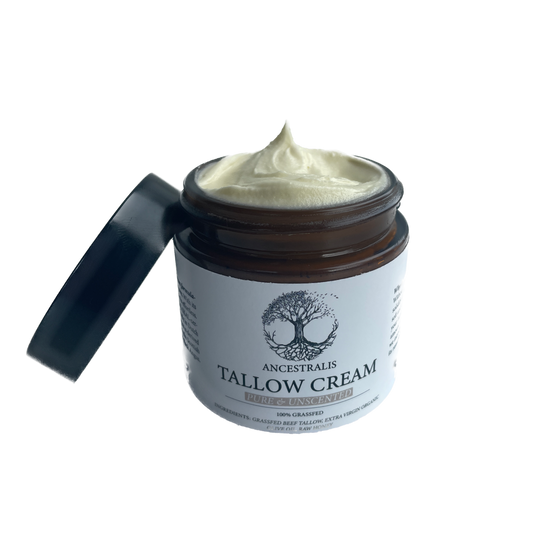⭐⭐⭐⭐⭐ 10,763+ Happy Customers
the carnivore diet
Our online portal was named after the English-speaking carnivore diet This is a diet that consists exclusively of foods of animal origin. The menu includes meat, fish, eggs, and dairy products (depending on tolerance), seasoned with salt.
On carnivoro ® you will find only carefully selected premium products from grass-fed, pasture-raised cattle. The gentle freeze-drying of our beef organs ensures that 95% of all vitamins, minerals, and trace elements are retained in the beef organ capsules.
You will also find useful products such as digestive enzymes, ox bile or kefir products, which carnivore diet can be usefully supplemented.
FAQs on the Carnigorene diet and our products:
What are the benefits of a Carnigoras diet?
- Elimination of all potentially problematic foods that often cause intolerances in people. These include FODMAPS (simple and complex sugars and sugar alcohols), gluten, fiber, lactose, yeast and alcohol.
- High protein content: Faster, longer lasting satiety may make it easier to lose weight
- Benefits of ketosis: People who Carnivore Dieters often report less brain fog, fewer mood swings and less daytime fatigue due to the low blood sugar fluctuations in ketogenic diets
- Simplicity and time saving: The carnivore diet Limits itself to a few high-quality foods of animal origin. Daily calorie counting, checking ingredients, or weighing portions are unnecessary. Time for shopping and preparing food is limited.
What is allowed to eat in a carnigoran diet?
Meat: beef, lamb, bison, poultry, game, etc.
Fish: salmon, mackerel, sardines, shrimp, lobster, mussels, oysters, etc.
Other animal products: eggs, lard, bone marrow, bone broth, sebum, cavier, etc.
With the carnivore diet you can eat all animal products, including muscle meat (beef, chicken, pork and more), fish, eggs, dairy products and organs . The classic, strict variant of the carnivore diet (also Lion Diet) allows only beef, salt and water.
With the much less restrictive animal-based diet, you can eat meat, fish and organs also eat dairy products, easily digestible fruits and honey. More information about the different variants of carnivore diet you will soon find in carnivoro Guide on carnivoro .eu
Who should supplement with organ capsules?
If organs are eaten regularly, then, most likely, there is no need for additional intake of freeze-dried organs capsules.
Our products (such as Beef Liver Capsules) are primarily intended for people who do not want to prepare organs themselves on a regular basis or who do not like the taste.
Bovine organs (especially liver) contain more vitamins and minerals per gram than any other food with particularly high bioavailability.
With gentle freeze-drying, around 95% of all nutrients are retained in the organs. This is significantly more than with conventional methods of preparation (frying, cooking or boiling).
Can you use the carnivore diet lose weight?
Especially in the first four weeks of a carnivorous diet, many people lose a significant amount of weight. Switching from carbohydrate to fat metabolism (ketosis) Fat burning is stimulated because the body lacks all carbohydrates to produce energy.
At the same time, some of the glycogen bound in the muscles is flushed out, which can lead to surprisingly rapid weight loss, but does not significantly affect the body fat percentage.
Through the high protein content of a carnivorous diet However, a feeling of satiety often occurs much more quickly because proteins create a lasting feeling of fullness. Consuming carbohydrates creates a feeling of hunger after a short time.
Is the carnivore diet a ketogenic diet?
Typically, a ketogenic diet is one in which more than 70% of the calories consumed come from fat and the rest from protein. Whether your body reacts carnivore diet in ketosis is influenced by several factors.
- Eating schedule: when and how often do you eat?
- Fat content of food: What types of meat are eaten? Are additional animal fats such as lard or butter consumed?
- Activity level: Do you regularly engage in endurance sports?
Those who enjoy fatty meats, eat more than once a day, and engage in endurance sports several times a week will most likely have no problems reaching ketosis. If they consume large amounts of protein with only a small amount of fat, then the carnivore diet Most likely not ketogenic. If you want to be on the safe side, use keto urine test strips.
Are organ capsules also suitable for my children?
From the age of 10, the daily micronutrient requirements (vitamins, minerals and trace elements) of children differ only slightly from those of adults. Therefore, there is nothing to prevent children from 10 years of age from receiving the daily dose recommended by the manufacturer.
Since our freeze-dried organ capsules are extremely rich in vitamins, the daily dose in younger children should be adjusted according to the current DGE guidelines and in consultation with the pediatrician.
Is a carnivore diet expensive?
The carnivore diet is not more expensive than other diets if well planned and properly designed. High-quality foods such as organic eggs, organic ground beef, organs (Liver, heart, or spleen) and canned fish are comparatively inexpensive to purchase. The same applies to animal fats such as lard or beef tallow, which can often be purchased particularly cheaply from local butchers.
One carnivore diet But it also saves a lot of time. By limiting yourself to a few high-quality foods, you save time shopping and cooking. Even washing up should be a lot easier for most people. Carnivore Courts within limits. In our carnivoro You will find a separate article on this topic.
Why does the bone broth start to clump when infused?
Since our beef bone broth is a pure product without any additives and binders such as soy alecitin, it can tend to lump when stirred too slowly.
Ideally, a milk frother is used to stir the Bone Broth to avoid the lump.
You can find a simple video tutorial here on our Bone Broth product page.
What snacks can I eat on a carnigoran diet?
Boiled eggs, lactose-free cheeses such as Parmesan, Gouda, Emmentaler or Pecorino, minisalamis or chorizo, canned fish (tuna or sardines), mini meatloaf, beef jerky or biltong, smoked salmon, cold cuts, bacon.
The best Carnivore Snacks are unprocessed animal productsIf you have an autoimmune disease Carnivore It is recommended to avoid all cured, smoked or otherwise processed animal products.
When does the carnivore diet Effect?
Some people can notice significant changes after just a few days or weeks, while others can often take many months for the body to adapt to the new diet.
We recommend that you carnivore diet to last at least 4 weeksunless there is a medical need to discontinue the diet early. The first two weeks are often overshadowed by symptoms of keto flu, in which the body rebels against the dietary change before any adjustment can take place.
How common are nutrient deficiencies in carnivore diet
In a classic carnivore diet Unfortunately, in a diet that limits itself to the consumption of muscle meat and salt, nutrient deficiencies are not uncommon. Raw muscle meat contains only very low concentrations of vitamins A, C, E, B5, and B9 (folic acid). Also problematic is the body's supply of the minerals calcium and magnesium, as well as trace elements such as manganese, fluoride, and iodide, when only meat is consumed.
Especially with the classic, highly restrictive variant of carnivore diet The additional intake of certain supplements can be particularly useful here. The most important supplements for a classic carnivore diet we have for you in our carnivoro counselor compiled.
Are there any studies on the effect of carnivore diet
There are already initial empirical studies on carnivore diet . The most well-known study was published in December 2021 by scientists from Harvard University published. More than 2000 participantswho have been in pure Carnivore diet, were questioned about their health status, eating habits, diet motivation and potential nutrient deficiencies (evaluation of laboratory data).
Main motivations for starting a carnivorous diet were:
- Weight reduction (78% of respondents)
- Increased ability to concentrate and more energy (74% of respondents)
- Allergy, skin, or autoimmune diseases (56% of respondents)
- To improve digestion (52% of respondents)
After evaluating the survey, the following results were found, among others:
- 95% of respondents improved their general health
- 91% of respondents had a significantly longer feeling of satiety and fewer cravings
- 83% of respondents reported significantly increased ability to concentrate
- 95% of respondents improved or eliminated their digestive problems
- 92% of respondents improved or eliminated their skin diseases
- 89% of respondents improved or eliminated their autoimmune disease
- The average BMI (body mass index) of the participants improved from 27.2 to 24.3
These study results are of course only a first indication of the potential benefits of a carnivorous diet for weight loss or alleviation of symptoms of autoimmune or skin diseases and require further scientific investigation.
Since this is a survey, no causal connection between the carnivore diet and the improvement of certain health markers. However, the results confirm the thousands of testimonials available online.
Don't I need the vitamins from fruits and vegetables?
All vital, essential nutrients are found in sufficient concentrations in animal foods. A balanced nose-to-tail carnivore diet supplies the body with all important nutrients.
The following nutrients are found in usable concentrations and with high bioavailability even only in animal foods:
Creatine, Carnitine, Anserine, Taurine, Vitamin A, Vitamin B12, Vitamin K, Riboflavin, Biotin (B7), iron , Iodine, Zinc, DHA, EPA
Are grass-fed animal products really that much healthier?
Meat, organs and products from grass-fed animals contain higher concentrations of the healthy omega-3 fatty acids ALA, EPA, DHA and DPA.
While the difference in muscle meat is comparatively small, organs of grass-fed animals often contain 20-100 times the concentration of omega-3 fatty acids.
In addition, the germ load in grass feeding and pasture farming is significantly lower than in conventional forms of husbandry.
Isn't red meat carcinogenic?
According to the current state of research, there is no reason to assume that the consumption of red, unprocessed meat increases the risk of cancer.
A detailed article explaining why this is not the case can be found in our counselor
What is meant by "nose-to-tail"?
In a "nose-to-tail" carnigoran diet, all parts of the animal are basically eaten to ensure that all important nutrients are consumed.
It is believed that this type of carnigoran diet most closely reflects the diet of our early ancestors.
A "nose-to-tail" diet is particularly rich in vitamins and important protein complexes such as collagen, which are often neglected in a conventional diet.
If you do not want to forego the advantages of "nose-to-tail" nutrition, but cannot make friends with the consumption of organs and meat parts containing your colleagues, it is best to supplement it with beef liver capsules and beef bone broth.
Do you not get gout from meat and organs?
Gout is a metabolic disease in which excess uric acid is deposited in the joints in crystalline form.
Since meat and organs contain purines (the precursor of uric acid), gout patients are usually recommended to have a low-purine diet.
However, the latest research shows that uric acid levels can only be influenced by diet to 14-16%. Furthermore, gout patients often have a genetic predisposition to elevated uric acid levels.
Not meat or organs but obesity and heavy alcohol consumption are the greatest risk factors for the occurrence of a gout attack.
Fructose is also similarly problematic because, similar to alcohol, it inhibits the excretion of uric acid in the kidneys.
Coffee and vitamin C-rich foods have a uric acid-lowering effect.
Worries, through a strict carnivore diet (when fructose and alcohol are omitted) of developing gout are unfounded.
A selection of our products
-
 Sale
SaleBeef Bone Broth
Vendor:carnivoro®Regular price From €29,95 EURRegular priceUnit price €119,80 per kg€34,95 EURSale price From €29,95 EURSale -
 Sale
SaleGrass Fed Beef Liver
Vendor:carnivoro®Regular price €38,95 EURRegular priceUnit price €405,73 per kg€44,95 EURSale price €38,95 EURSale -
Grass Fed Beef Organs
Vendor:carnivoro®Regular price €38,95 EURRegular priceUnit price €405,73 per kg€44,95 EURSale price €38,95 EURSale -
Grass Fed Beef Testicles
Vendor:carnivoro®Regular price €54,95 EURRegular priceUnit price €572,40 per kg€59,95 EURSale price €54,95 EURSale -
Goddess » Women Complex
Vendor:carnivoro®Regular price €54,95 EURRegular priceUnit price €572,40 per kg€59,95 EURSale price €54,95 EURSale -
 Sale
SaleMen's Health Package
Vendor:carnivoro®Regular price €89,95 EURRegular priceUnit price €468,49 per kg€104,90 EURSale price €89,95 EURSale -
Female health package
Vendor:carnivoro®Regular price €89,95 EURRegular priceUnit price €468,49 per kg€104,90 EURSale price €89,95 EURSale -
Tallow Creme
Vendor:AncestralisRegular price From €23,95 EURRegular priceUnit price €39,92 per 100ml€0,00 EURSale price From €23,95 EUR
Let customers speak for us
notice
-
No medicinal product
Do not exceed the recommended intake. Food supplements should not be used as a substitute for a balanced and varied diet or a healthy lifestyle.
-
storage
Keep closed, cool, dry and out of the reach of children.
-
Legal notice
Our products are intended for nutritional purposes and therefore do not affect the German Medicines Advertising Act (HWG). A good nutritional status can help the body prevent or overcome illnesses. All statements made regarding the product describe properties and physiological effects, which may naturally vary among consumers, and do not constitute a promise of healing or health benefits.
Carnivore - Why is this Healing People?
The benefits of a carnigoran diet:
First German Carnivore study
-
Who can participate?
To participate in the study, we require a blood test result from before the diet change and a blood test result while on the carnivorous diet. You should have been on a carnivorous, animal-based, or comparable diet, such as a paleo-ketogenic diet with a high meat content, for at least 2 to 3 months.
-
What data are needed?
The data should include at least a complete blood count and blood lipid (cholesterol) levels, but ideally more. It will, of course, be treated anonymously.
-
Carnivore Questionnaire
Additionally, you must complete the questionnaire (see below). This takes approximately 5 minutes. You then send it along with the blood tests to:rainer_klement@gmx.de.






















